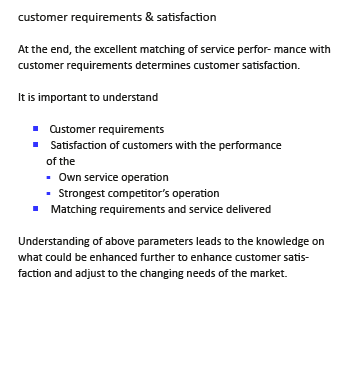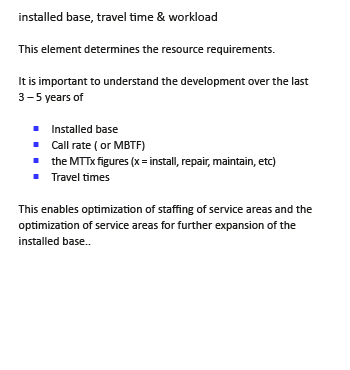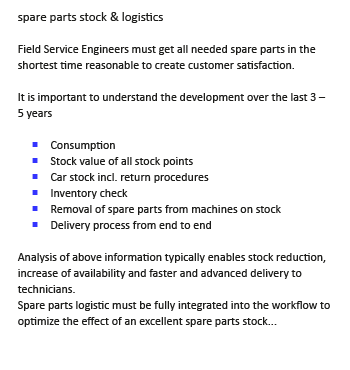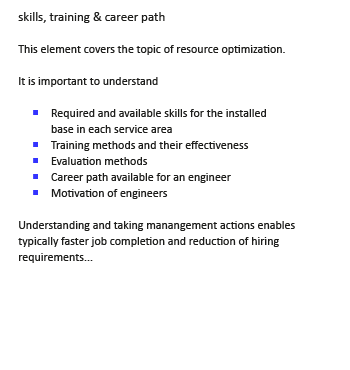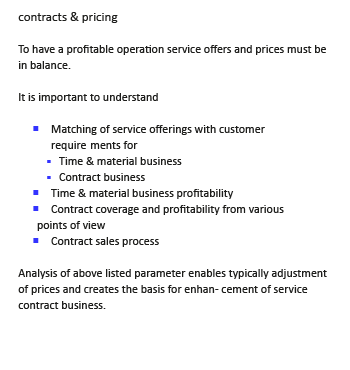Definition of "Service" and Deducted Requirements
There are plenty of definitons of "service" available in literature and internet. Considering the focus of the service institute japan the most suitable wording is:
"Services can ... be defined as all those activities that are intangible and imply an interaction to be realised between service provider and consumer" 1
Key words in this definition are: activities, intangible, and interaction. All these three words have to do with actions done by humans from a service provider towards a customer. In above definition, the customer is called the "consumer" because the customer consumes the service, the moment it is produced.
Service products are intangible, thus perishable, and time, during which the service is delivered, is an important element. This means, a service operator needs to provide a person with suitable expertise - depending on the situation including spare parts - at the right time, at the place where the requested service can be provided.
The consequence is that there is need for a highly effective and efficient service process to make the operation profitable and create customer satisfaction the same time.
1B. Van Looy, P. Gemmel, R. VAn Dierdonck, (2003) Services Management.Second Edition. Harlow, Essex: Pearson Education Ltd, FT Prentice Hall
A Service Operation Is Like A Production Plant
A normal production plant produces tangible products, whereas a service operation's products are intangible; this is the only difference.
In a high efficient production plant it is common that the plant managers engages production specialists to increase efficiency of the entire plant operation.
As a service operation is also a production facility, which needs highest efficiency and effectiveness to produce its non-tangible products featuring high quality and low costs, the service institute japan is set-up and prepared to support service managers in enhancing their service-production capacity even further.
Service Operations in Our Focus
Service operations where one or more of the following activities
- Call center
- Installation
- Maintenance
- Repair
- Refurbishing
- etc
needs to be done for tangible and intangible goods. These in the case of business-to-customer or business-to-business interactions.
Tangible goods can range in size from a small hand held device up to a production plant. Therefore, depending on the size and nature of the manufactured good, either the service engineer moves to the site where the manufactured good is installed, or the manufactured good is moved to the site where the service engineer is stationed.
Intangible goods can range from support buisness-to-customer to support business-to-business.
